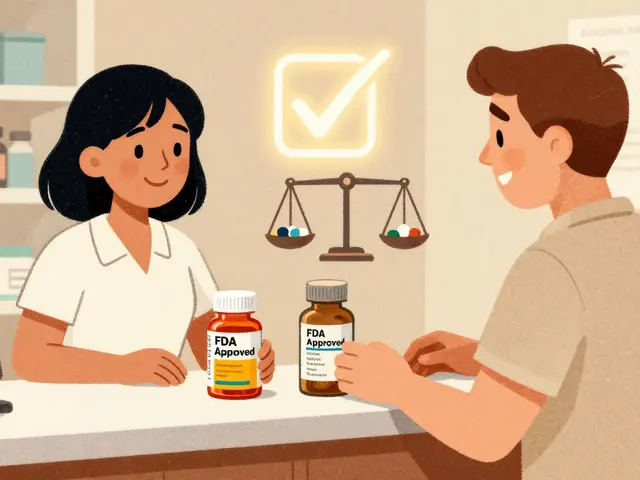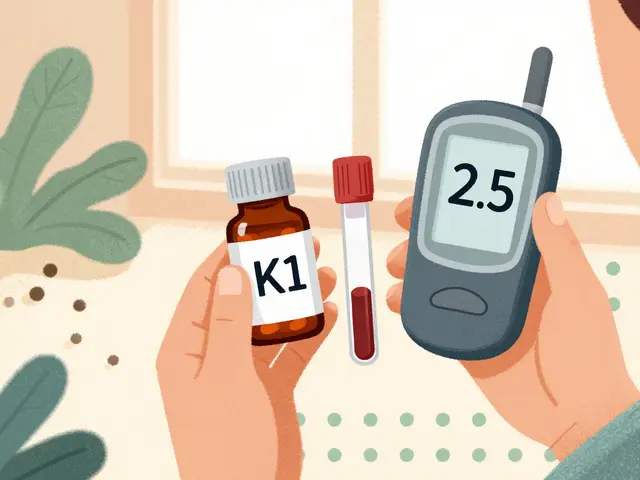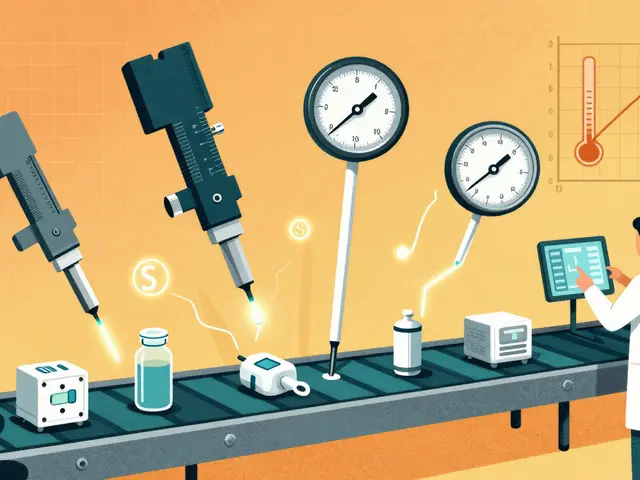Carvedilol substitutes: practical alternatives and what to expect
Need an alternative to carvedilol? Maybe you had side effects like fatigue or low blood pressure, or your doctor wants a different drug for pregnancy, asthma, or a specific heart issue. Carvedilol blocks both beta and alpha receptors, so not every substitute will behave the same. Below are realistic options, why a clinician might pick one, and what to watch for when switching.
Common carvedilol substitutes
Metoprolol — A beta-1 selective blocker often used for high blood pressure, angina, and after heart attacks. It’s easier on lungs than nonselective blockers, so it’s a common swap if asthma is a concern. Downsides: can still cause tiredness and may affect blood sugar control.
Bisoprolol — Another beta-1 selective option that’s widely used in heart failure and chronic high blood pressure. Many patients tolerate it well and it has simple once-daily dosing. Your doctor may prefer it if carvedilol’s alpha-blocking effects aren’t needed.
Nebivolol — A newer beta-1 selective drug that also helps widen blood vessels via nitric oxide. People sometimes report fewer sexual side effects and less fatigue, though cost and availability vary by country.
Labetalol — Like carvedilol, labetalol blocks both alpha and beta receptors. It’s often used in pregnancy-related high blood pressure and acute hypertensive emergencies. It’s not ideal for long-term outpatient therapy for everyone, but it’s a useful alternative in specific situations.
Propranolol — A nonselective beta blocker that treats tremors, migraine prevention, and anxiety-driven heart rate spikes as well as blood pressure. Avoid if you have asthma or severe COPD because it can tighten airways.
Atenolol and Nadolol — Older beta-1 selective (atenolol) and nonselective (nadolol) choices. They work but are less commonly chosen now because other drugs often have better evidence or side effect profiles.
Not a beta blocker? Sometimes doctors replace carvedilol with an ACE inhibitor (lisinopril, enalapril), ARB (losartan, valsartan), calcium channel blocker (amlodipine), or a combination, depending on whether the goal is blood pressure control, heart failure treatment, or fewer side effects.
How to switch and what to monitor
Never stop carvedilol suddenly — that can cause rebound high blood pressure, fast heart rate, or chest pain. Your clinician will usually taper the dose over days to weeks while starting the new drug. Expect checks of blood pressure and heart rate within days of a change. Watch for symptoms: lightheadedness, worsening breathlessness, swollen ankles, low pulse, or dizziness.
Ask your doctor or pharmacist about interactions with diabetes meds, other blood pressure drugs, and medicines that slow heart rate. If you have asthma, liver or kidney issues, or are pregnant, mention that — it affects the best choice.
If you’re unsure which substitute fits your situation, write down your main problems (why carvedilol isn’t working, other conditions, allergies) and bring that list to your prescriber. A careful switch and simple monitoring usually keep things safe and effective.










